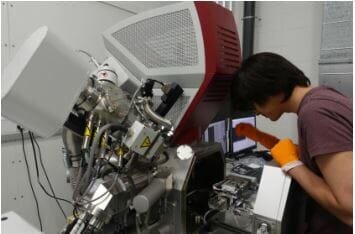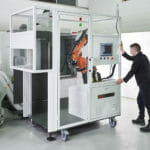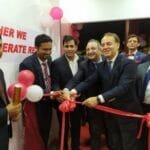Woolpit, United Kingdom 25 th November, 2019: Deben, a leading provider of in-situ testing stages together
with innovative accessories and components for microscopy, reports on the University of Surrey’s efforts to
develop the groundwork of new, state of the art ceramic composites that will revolutionise the treatment of oral
disease.Dr Tan Sui is a Materials Engineering Lecturer (Assistant Professor) in the Department of Mechanical
Engineering Sciences at the University of Surrey, UK [1]. Her current research group consists of one
Research Fellow, four PhD students as principal supervisor and three PhD/EngD students as co-
supervisor. Her research portfolio is focused on investigating the structure property evolution and
structural integrity of hierarchical natural and bioinspired materials. Her research areas also include
probing the processing-structure-residual stress relationship and micromechanical mechanism of failure
in engineering alloys and advanced energy materials. Her expertise includes synchrotron X-ray with
multi-modal correlative microscopy and multi-scale modelling. Her research vision is to characterise and
understand the intricate links between structure and mechanical property in these material systems at
different length scales, as this is essential for development towards improved design and extended
functionality for future applications.
In 2018 Dr Sui’s group purchased a high-precision tension-compression-bending stage from Deben UK
(MT5000), the MT5000 system was ordered with various exchangeable loadcells and a heating-cooling
feature. The aim is to develop a unique facility which specialises in in-situ & correlative materials
characterisation at the University of Surrey. The Deben MT5000 has been successfully integrated with a
TESCAN FERA3 Xe Plasma FIB-SEM at Surrey and synchrotron X-ray beamlines at Diamond Light
Source (DLS). A full range of loading scenarios and sequences will undoubtedly enable the generation of
new data that will provide further insight into the complex mechanism of mechanical deformation and
failure in natural and engineered materials (including dental tissues, bioinspired composites and
engineering alloys).
Mr Nathanael Leung (a second-year PhD student) and Dr Jingyi Mo (a Research Fellow) from Dr Su’s
group have been working on novel bioinspired dental composite using the Deben Microtest MT5000
system. The experimental work provided the groundwork for a recently awarded 2-year EPSRC grant
(EP/S022813/1), collaborating with University of Bristol, University of Birmingham, Chinese University
of Hong Kong and National Physical Laboratory (NPL) [2]. The goal of the project is to provide a
fundamental understanding of the role of bioinspired microstructural features in determining the
mechanical properties of novel dental composites for dental crown applications. Studies have shown
that over 40% of the world’s population are affected by oral disease, therefore there is a ‘real-life’
growing demand for highly effective solutions with increased longevity.
Nathanael describes his work and experience using the Deben system: ‘My project is to optimise the
design and development of cost effective, freeze-casted, bioinspired ceramic composites, fabricated in
the Biomaterials Engineering Group (bioMEG) led by Professor Bo Su, Bristol, by studying the fracture
mechanics of the material. I do this by using the Deben stage to perform 3-point bending fracture
toughness tests on nacre-like composites, inside an SEM. Being able to perform these tests in an SEM
allows me to observe and identify the fracture mechanisms that are taking place, in real-time. This tells
me what adjustments need to be made to the microstructural design and to determine a structural
configuration that provides the optimum fracture toughness properties’.








